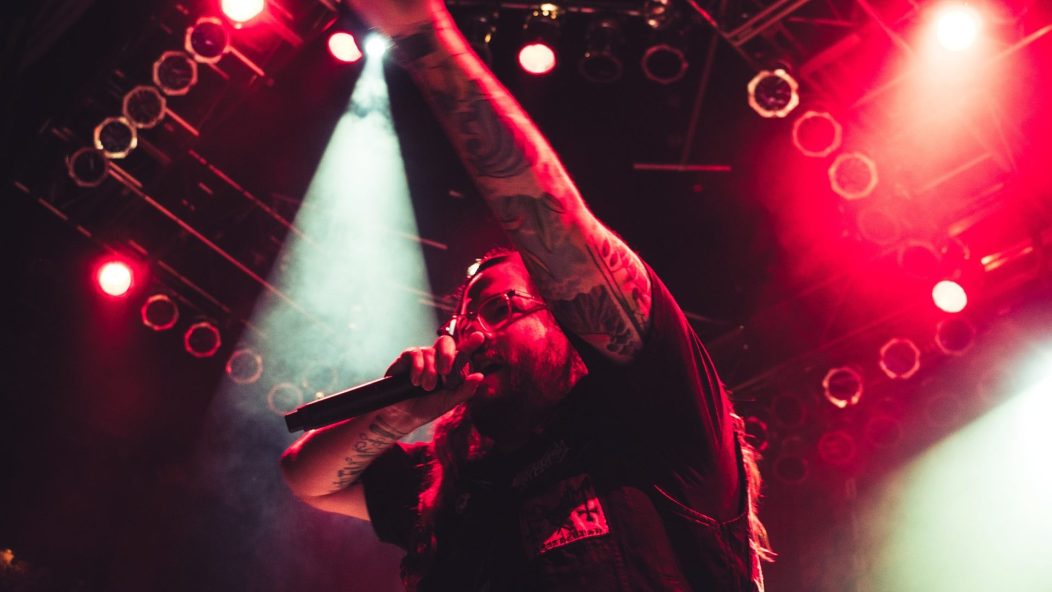
The Black Dahlia Murder Brings the Night Upon Us
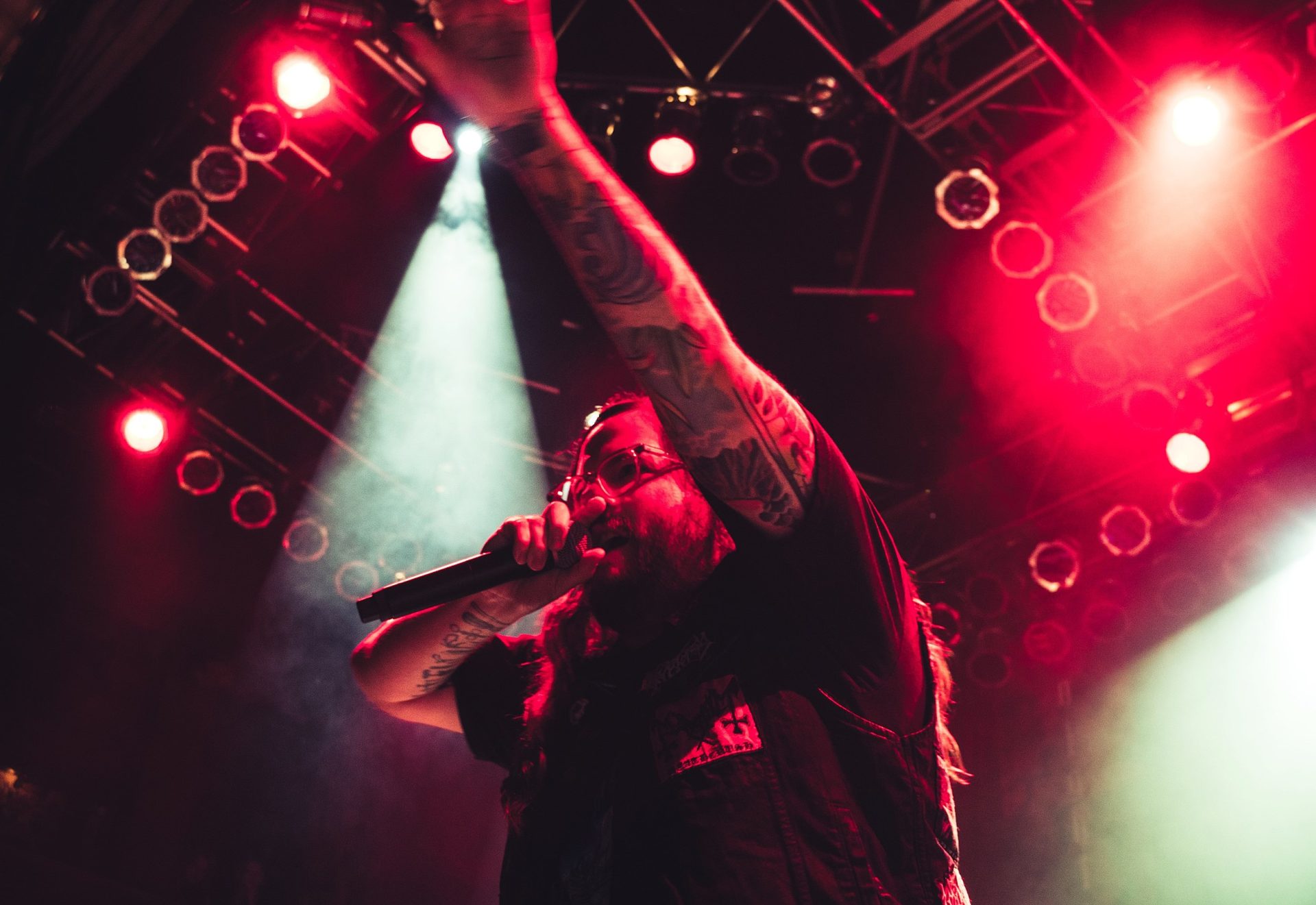
…
Few bands retain underground appeal once they make it aboveground. It’s less a matter of taste and style, more a matter of scene relevancy. Popularity, for whatever reason, degrades our notion of novelty and destroys the element of surprise. That said, there’s no real rule for this matter, only observations made by individuals; exceptions abound wherever you look. And you don’t even have to look hard: above and beneath the water’s turbulent surface, The Black Dahlia Murder has reigned true and strong for over a decade, championing straightforward yet technical, familiar yet distinctive death metal with a special blackened twist.
The magic to their formula is as complicated as you want to make it, though one key element must be taken into consideration: that of fun. The Black Dahlia Murder is, bottom line, a fun metal band. This means they’re a blast to watch, exciting to listen to, and, as it turns out, pretty damn easy to talk to. They’re big on entertainment value, they own their stage; this band has never sold out or taken a cheap-and-easy route. Throughout lineup changes and all the trials/tribulations a band undergoes when they “make it big,” The Black Dahlia Murder has stayed true to its promise: to champion the music and the experience of consuming it above all else.
By no means is The Black Dahlia Murder oblivious or single-minded, though. They understand the importance of nuance, the importance of their position in the metal scene. The band is self-aware when it comes to platform and stature, fanship and devotion. On these topics and more, now-legendary frontman Trevor Strnad was kind enough to chat with us before their set in Chicago on Friday, the very first on a month-long US tour celebrating the release of their latest album Nightbringers. On this tour, they’ll be playing the album front-to-back.
…
…
Well [laughs], how’s the tour been going so far?
Well, it’s day one, and it looks pretty exciting! We’re pretty close to the set, I’m hoping a few stragglers will show up yet. I’ve been excited for this, man, it’s gonna be really big.
Yeah, you guys bring out the masses, and so does Whitechapel and Fleshgod, man, they’re on right now.
Yeah, we’re playing our new record in its entirety, and a couple more tracks. And Whitechapel is playing for their tenth anniversary of, I think, their second record? So kids are coming out in droves for that, too. Good combo, man, good combo!
Woo! Let’s take an immediate left turn and just get deep. Nightbringers is a fun, upbeat kind of get-you-pumpin’ album, but there’s a darkness to it, and a power to it, and an emotionality to it. What have you put behind that album, like what comes out of you in terms of the “spoken inside” coming out to the world?
Since the very first parts of song came to life in demos and shit, it just seemed like a special album. From the ground up, it was really exciting to make. And Brandon coming into the fold was a big part of that — you know, new blood. And he’s a super-talented guy.
But, yeah, I feel like we’re getting closer to adulthood with each album. It’s a weird thing to say, it probably sounds lame on paper, but I feel like the band has been maturing over the years. Making music that has more of an emotive quality to it, so I’m kind of responding to that in a way.
Even when I’m writing some fantastic shit, full of characters and fiction, I try to put myself into it. I really try to embody whatever villain I’m trying to bring forth there. I enjoy writing for the band immensely — I take it really seriously, but you know it’s tongue-in-cheek too, you know what I mean? It’s death metal.
…
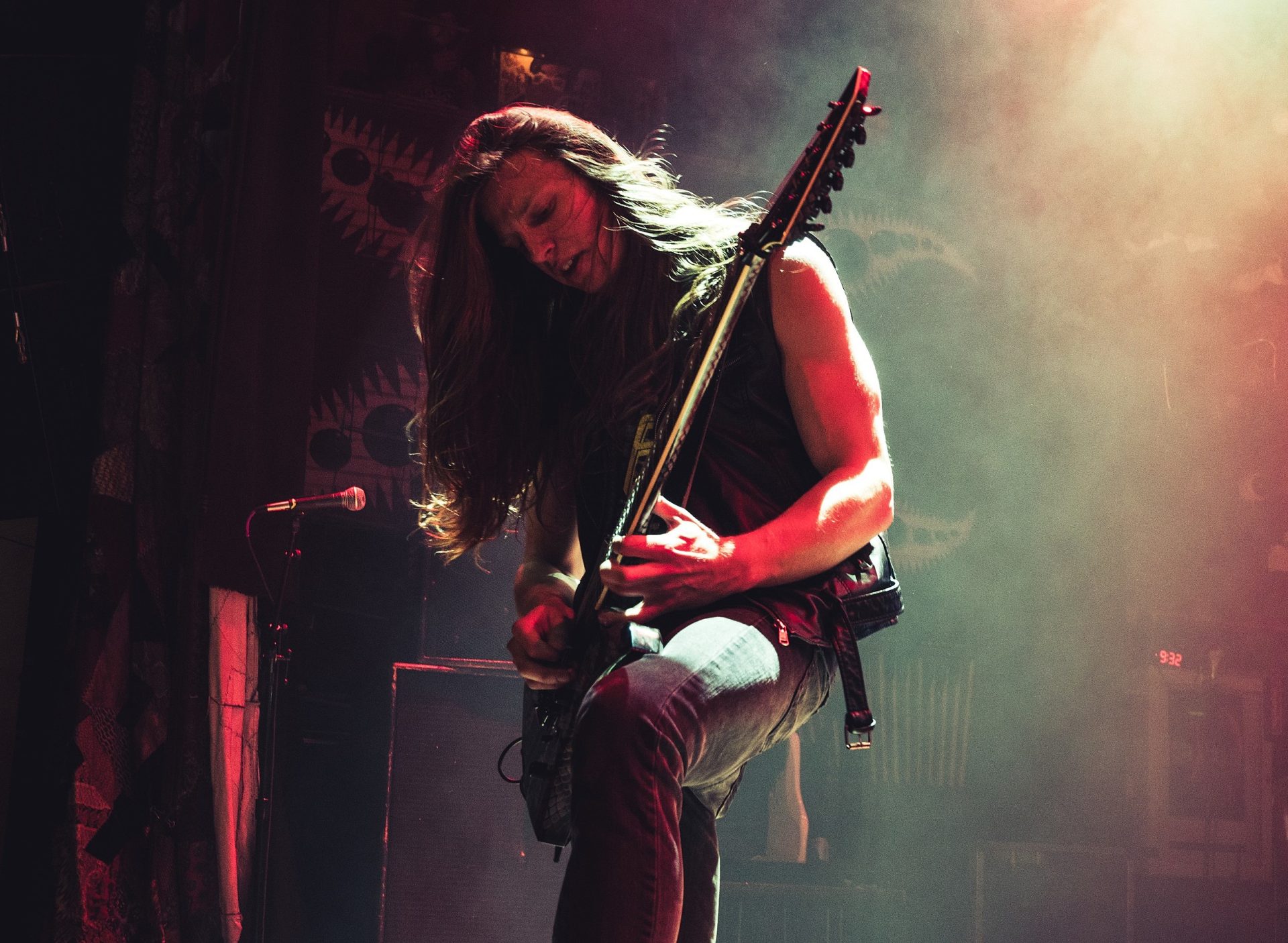
…
You guys go up there and you have fun — that’s what draws me to your music specifically. A lot of guys don’t look like they’re having fun — they may put on a good show, they might have great atmosphere, great drama…
I love all those bands, too.
Me too, and I like it. But sometimes you just wanna go up there and watch dudes have a ball. Every time you play a show, you have that energy. Where does that come from?
It’s fun! But also, you know, the it’s the success of the band. I can’t look the gift horse in the mouth… every day, I look out there and see those people and it’s like fuck. I get touched!
Yeah, there’s people out there, they connect with it on such a level that brings them out and all the want is to cheer you on. It’s the coolest thing.
Having people coming more than once, you know, that’s fucking awesome. I see a lot of repeat offenders, and I love that. That’s a huge compliment, you know?
But, it’s just fun, man. I can’t… well, we never “looked cool,” you know what I mean? I think even less so when we first came out, like total nerds with Wranglers [laughs]. We wanted to be accepted as just a death metal band and go down the typical road of playing death metal. We were just perceived as so many different things…
You guys carved out this really unusual sound, a definite The Black Dahlia Murder sound, pretty early on.
The look of the band too, and the live energy. We grew up cutting our teeth playing all these hardcore shows. Basically there was no tangible death metal scene in Michigan, that I could find anyway. So, at the time, the “metalcore” that was huge… the beginning of all those At The Gates banana riffs coming into every single band. There was your Seven Day Curse, your Unearth, shit like that.
There was a lot of really metallic bands in the hardcore scene at the time, that was kind of our angle. We’re playing with like, Throwdown, at these local Michigan shows, and they’re playing three chords and jumping around fucking everywhere and looks amazing, and it’s just so high energy. We were trying to compete with those bands — having a high-intensity show even though the music was more complicated, you know?
It’s always been a punk thing, too. We have roots in punk. The weirdest thing ever: Rollins’s book about how shot tour[ing] is made me want to tour more than anything. As a kid, Get in the Van was kind of that awakening I had. If you want to get shit done, you want to be on a label, you want to do all this stuff… do it yourself! I was the last person to come into the band — they were just missing the singer — and I think that’s what attracted them to me the most. It was that I wanted to tour, I wanted the band to be more than just a fucking local band from day one. I came in with a mission, and I think I kind of excited everybody, you know what I mean?
Yeah, you’re comin’ in, you’re gonna do this…
Yeah, we’re gonna get out there, we’re gonna sell a CD to some person we don’t know! And they’re gonna like it, and we’re gonna come visit them and play those songs to them [laughs]!
Like, that’s the dream man. We were the biggest nerds in the scene, kind of a small, tight-knit hardcore scene. We didn’t really have any success in those early years at home, like three years just kind of kicking around Michigan, being dumbasses. But, once we got this EP out on Lovelost records… and then that was the goal, to get something really pressed so that we could get reviews, then use the reviews so we could make a rap sheet that we would pitch to bigger labels.
It’s always been kind of a punk thing, and we’ve always been trying to break down the fourth wall in that way. That’s to say, we’re all equals. That’s the way I see it. There’s no show without them [fans], you know what I mean?
…
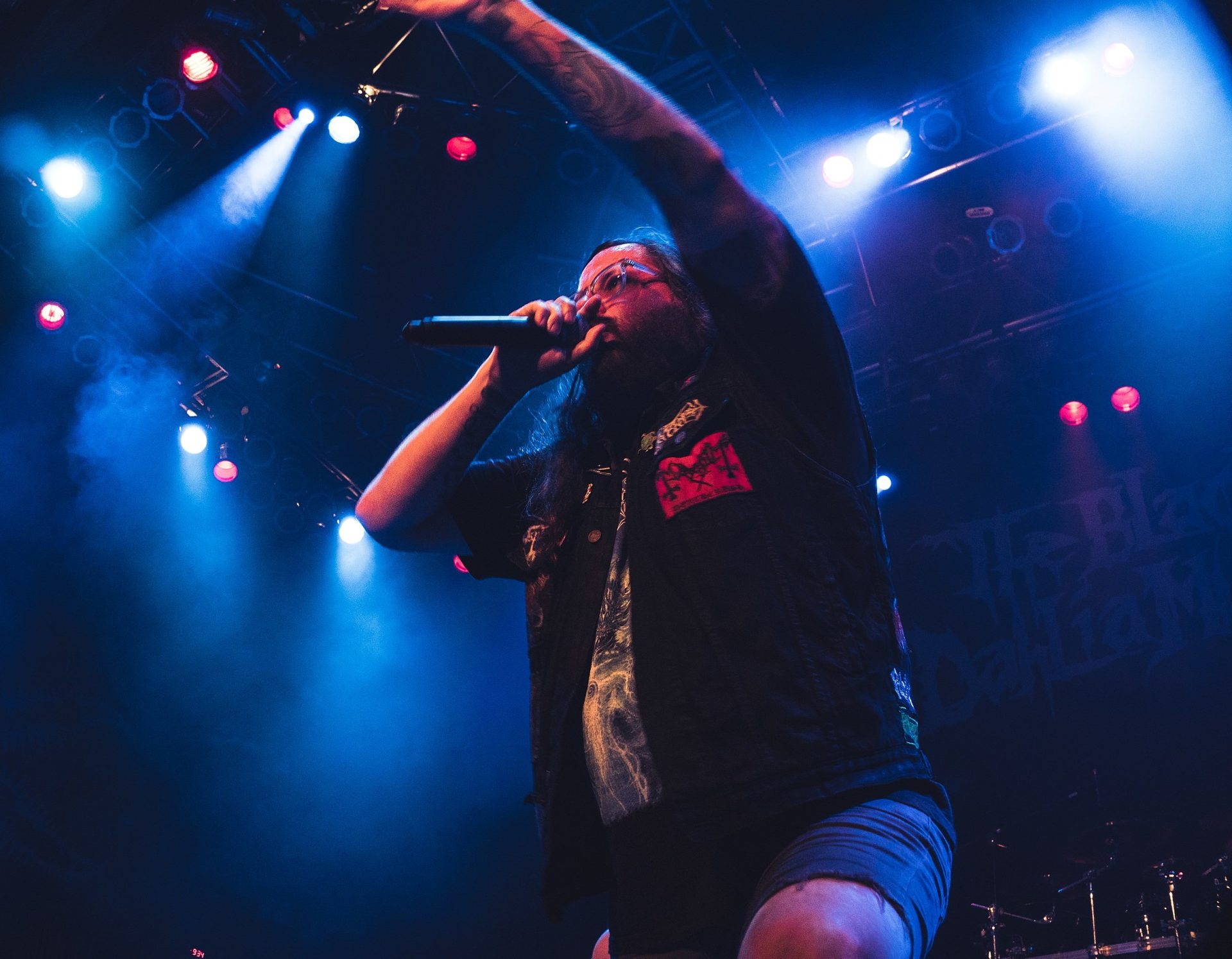
…
Do you feel like there’s a synergy between your personality and the metal scene surrounding The Black Dahlia Murder? These DIY feelings/spirit you have inside, do you feel connected and at one? There may be some separation there, too, with a lot of drama and politics going on [in general].
I’m always staying grounded in at least checking out the underground still, keeping my finger to the pulse. One of the most rewarding things in my life, still. And now that I have a pedestal where people will listen to me about what bands to check out, I fucking love doing that. I feel like I’m giving back to the thing that made my whole life.
Yeah, you spend time and curate and find the things that you…
Yeah, that’s what I was doing before anyway, you know what I mean [laughs]? I was doing it for my own satisfaction. Doing the column with Metal Injection has been a really good look for us, even though we’re a bigger band, it’s like, “these guys do care about the underground, they did come from the underground.”
Hell [laughs], everyone from the underground loves you anyway!
I don’t know [laughs].
Well, you got all the loud people online and shit, whatever. Everyone I know at least likes The Black Dahlia Murder, at least in some capacity, whether [the band] makes them feel happy, whether they like the guitarwork, whatever reason really.
Works for me!
You know, people are always trying to define who we are, musically, different genres. Every time we appear online, it’s like a 50-comment genre battle afterwards. It’s been like that since day one, and I used to be kind of embittered about it — I just wanted to be seen as a death metal guy, and not a wannabe or some shit like that, know what I mean [laughs]? Being kind of a hard-to-pin-down thing has given this whole thing its immense life.
I think that’s kind of the point: people have a hard time trying to pin down what you guys are doing… they like it, but they can’t put a clear label on it. And, that’s the art, I think.
I didn’t see how that was going to play out to our advantage, and it really has. So, I look out in the crowd and see all walks of people. I feel like the leather-clad, longhaired conglomerate… we’re slowly chipping away at them with every album. As we get better chops, and more hair or whatever! I think as long as we can get in their ears and get one chance.
I think there’s a lot of misconceptions about the band, too. We’re lucky to be in the press next to all those big metalcore bands when that was the big thing. Really, I never predicted any of this, I never thought I’d play a fucking traveling festival, I had no idea. Then, once Metal Blade was like, “yo, we want to put you on Ozzfest” right as the second album was coming out…
You guys probably shit your pants.
We did. It’s debatable whether we were good enough to be up there, really. We were pretty young, still. But the exposure and the awareness, that was a massive turning point that started this snowball that just hasn’t stopped, or at least doesn’t feel like it.
We’ve been very fortunate and try to make good decisions, keep[ing] the band “friendship first” — we’ve had a fuckton of people through the band, but it’s hard. Our schedule is so demanding. It’s slowed down a lot — we can afford to step back a little bit — but there was a time we were gone ten months. It was gnarly, three tours butt-to-butt, we wouldn’t even go home. Just straight one to another.
People dream of that lifestyle, but there’s probably also hardships.
Ugh, it’s so grueling, you know? That’s what people don’t understand about why members leave. The brotherhood is still there, for the most part, with everyone we’ve parted with.
It taxes and asks for so much, right?
So much sacrifice. But there’s been no question in my mind, as soon as we got signed, we were going to take this thing to the hills, and we’re not going to say “no.” We don’t say “no.” If there’s a time to tour, we’re doing it. If there’s an opportunity, we’re doing it. When you come into the band, that’s the kind of credo: you’re not going to stop us from doing anything. You have to be gung-ho, ready to go, everything.
I understand how people’s priorities can change… I used to be really bitter about the people who left in the very first couple lineups, you know? And it got ugly. But I get it now, I’ve been out here so long now. Especially, just Brian and I doing this forever, the dream hasn’t changed for us. All I wanted was to make one record and have it received. And now, it’s gotten so much more exciting and big.
…
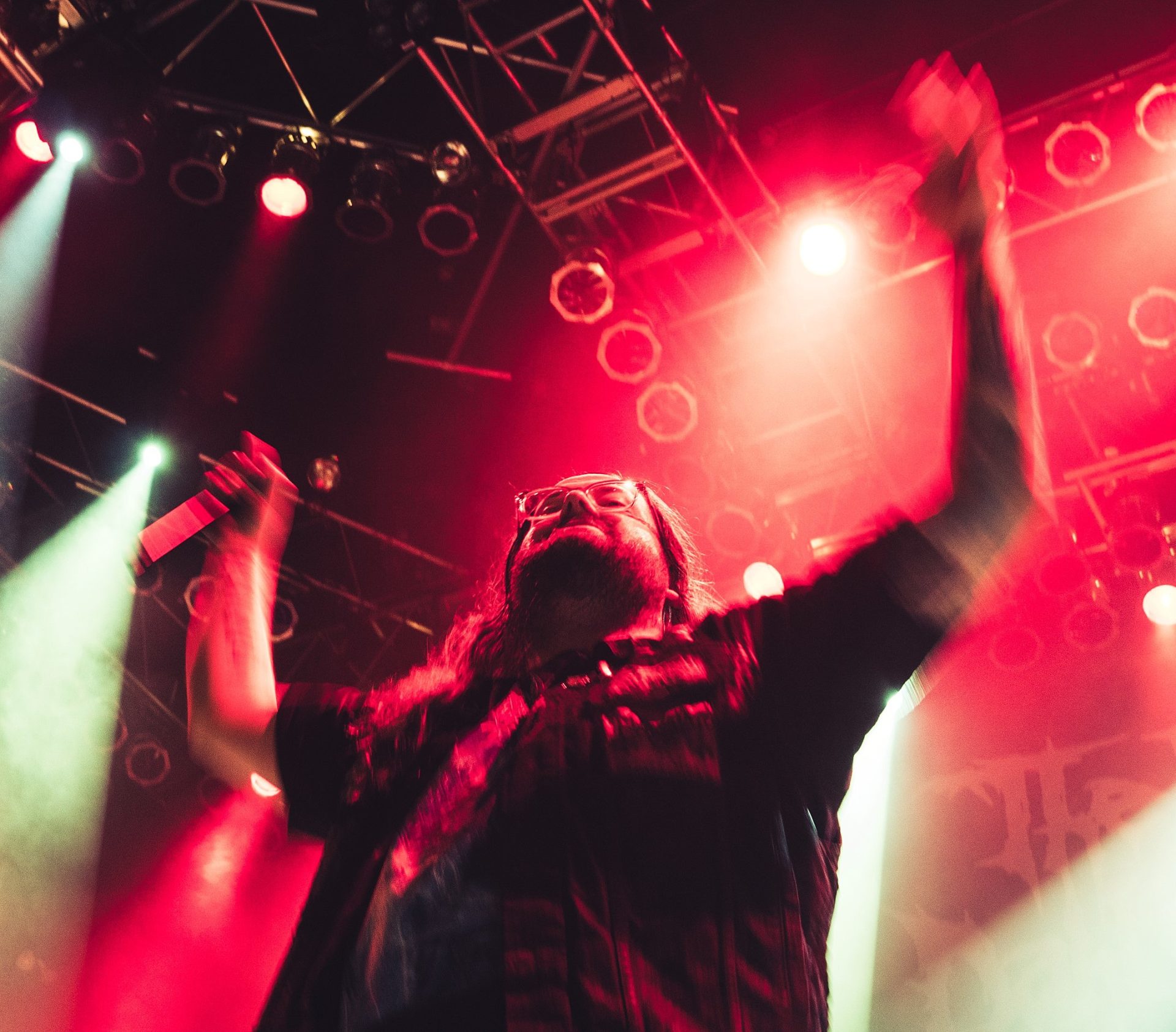
…
Leads me to my last question: how self-critical are you? Do you pick out mistakes you make during the process of writing and criticize yourself, or do you take things in flight and flow through?
It goes both ways. Sometimes it’s so natural, I can sit down and write one song in one go. To me, that’s the key. It’s to write it and when hearing it you’re so excited about it. You’re like, “wow, this is the shit!” You just try to capitalize on that kind of… I don’t want to say beginner’s luck, but your first “go” at things.
Initial burst of creative juices?
Right, right. Every time I come back and I hear there guys and what they’ve done, it’s more exciting for me as a writer. Then there are some times when it gets dark for me, dude. Usually the beginning of an album where I’ll have a block. And it’s gotten worse with more success of the band, I feel like it’s more pressure, you know?
It’s a good pressure to have too, though — people have their eyes on you, and that’s awesome. They are waiting, hopefully, for the next piece of the puzzle. That’s so exciting. But then there’s times where it’s like, “I’ve written every terrible thing you can write, there’s nothing horrible I could say anymore, I’m going to flee to Canada and join the witness protection so my band can’t find me and kill me!”
I am very self-critical. I do a lot of re-writing, more so now than ever before. Anything I think is done, like a demo, I’ll just sit with it a lot.
So you have an intense kind of proofing process, then?
Yeah, it’s not anything like a checklist, I just do it to myself. There’s a few songs I rewrote from the new [album] because they just weren’t grizzly enough. Abysmal had a lot of really emotive… it was a cathartic album for me in a lot of ways. A lot of depressive lyrics coming from my own life; this time, I was headed that way with some songs, but then was like, “nope, blood and guts.” Tales from the Crypt, dude [laughs].
I think those are the most successful songs we have, fan-wise. I guess [they’re the] ones I like the most, too. Necrophilia, werewolves, all the staples and cliche shit. I love that shit. To me, metal is something… I love it, I respect it, I think it’s great, but I can also laugh it at it. It’s corny, there’s funny shit everywhere!
I think that’s important in life in general.
Yeah, yeah, yeah. There’s a duality to it. There’s shit I’m writing… I know it’s corny as fuck, but that’s what metal is. That’s just like, par for the course.
I enjoy trying to stay a certain course of realizing we have so many young people being into the band, and we can be the gateway to the extreme. So I kind of accept that responsibility and I try to embody what I always look for in death metal with what we do. Visually, with the album covers and shit (that’s all my department), thematically and lyrically, you know, just the stuff which excited me at 15 [years old]: definitely blood and guts. Lyrics where you read them and go fuck, dude.
And I’m so desensitized from that, now, from having my nose in death metal [for so long]. Maybe the world is more violent and more terrible than… well, maybe it’s not, maybe we’re just more aware of it because of the Internet. It’s kind of taken the piss out of death metal… now, the Internet generation is old enough that they’ve been raised on the web, they’ve seen shit porn by the time they were five. It’s a different world than getting Butchered at Birth and being like, “this is contraband, what the fuck, how can this even exist?” That was my first gory, offensive death metal record which made me feel that way.
It’s the attraction to the macabre.
Right, it’s the same reason why people like scary movies or haunted houses, it’s a healthy thing.
That’s an interesting take: the way the world is going, horror is — and essentially, death metal — less extreme.
Totally. On that note, there’s no shortage of inspiration when you look to the real world for lyrics. I think the average kid… I think they’re way more desensitized than I was, just coming up in the Internet era. It’s a Pandora’s box that everyone opens.
Well, I hope the world’s not fucked.
Ah, I think it is!
But in the meantime, I’m going to listen to good music.
Oh yeah. That’s the only thing I care about, man. I’m not a political guy. I have views and shit, but I don’t think that’s what our band is a vehicle for at all. If anything, it’s for music, it’s for an escape from reality (for me), and that’s what music is for me as a fan, too. It’s awesome, and I love it.
…
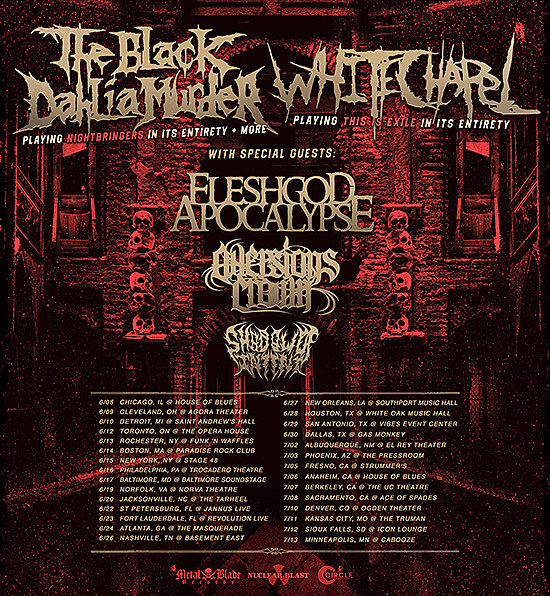
…
Follow Strnad on Twitter and check out some pics from Friday’s tour kick-off Chicago show:
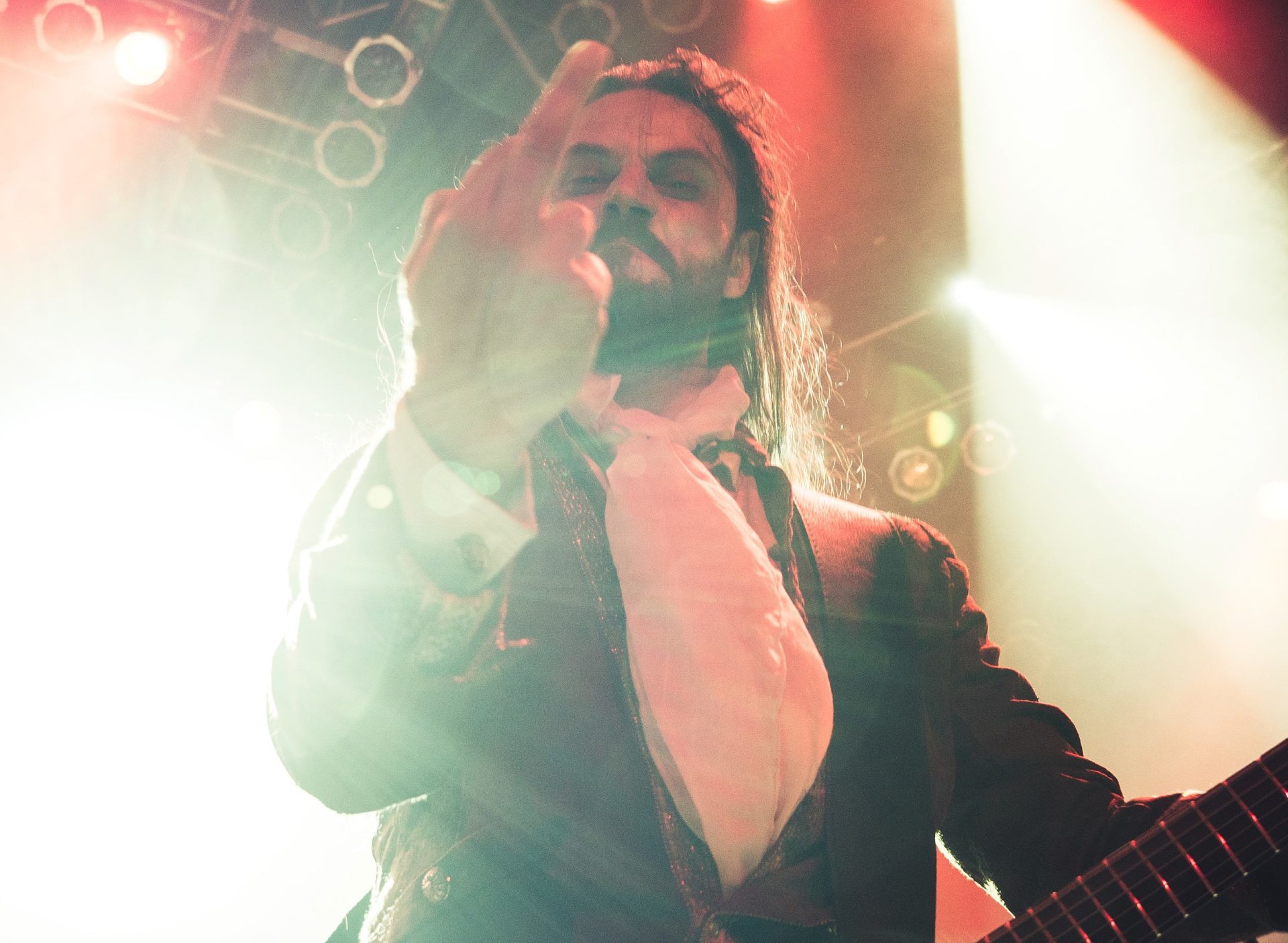
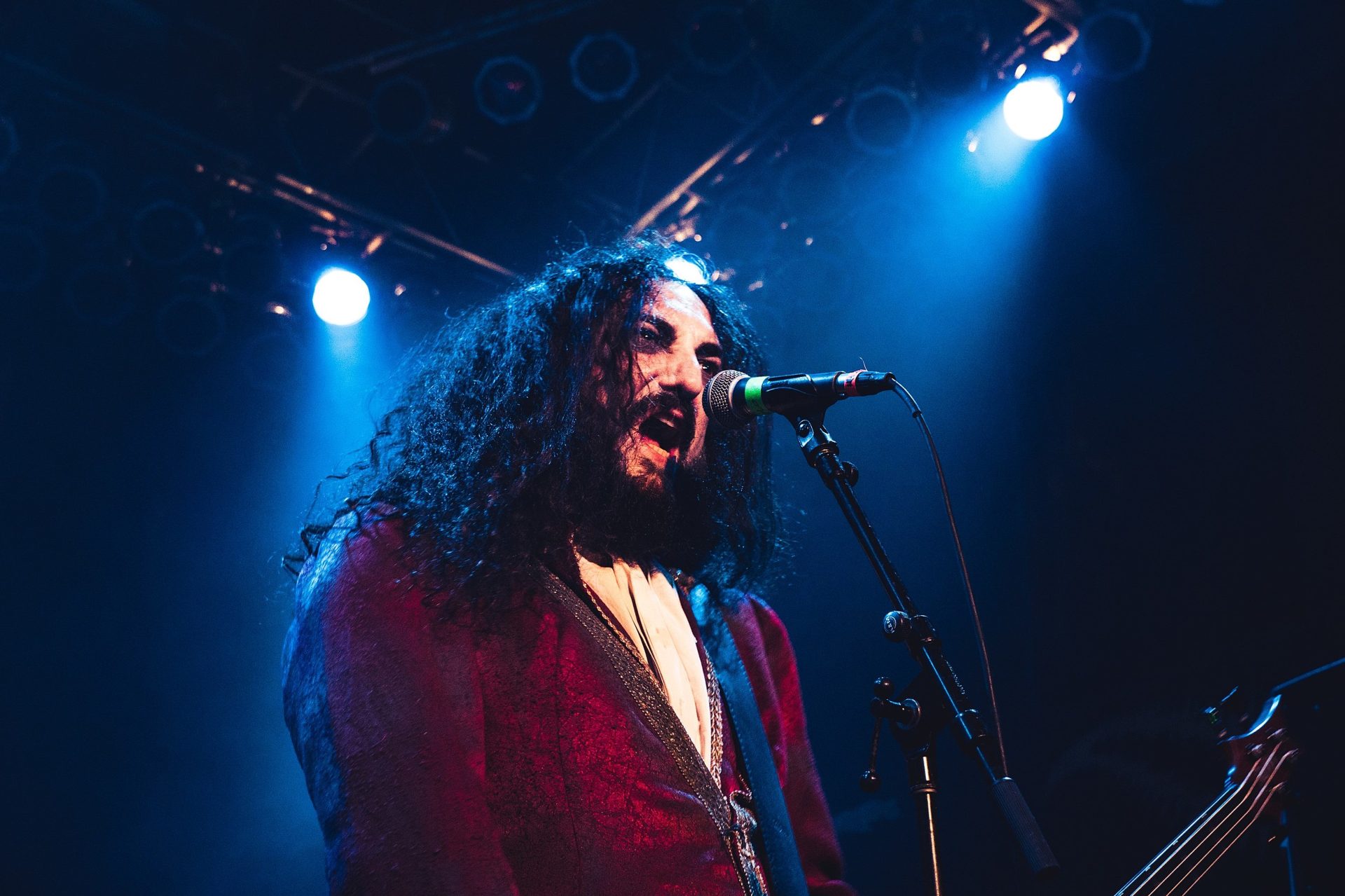
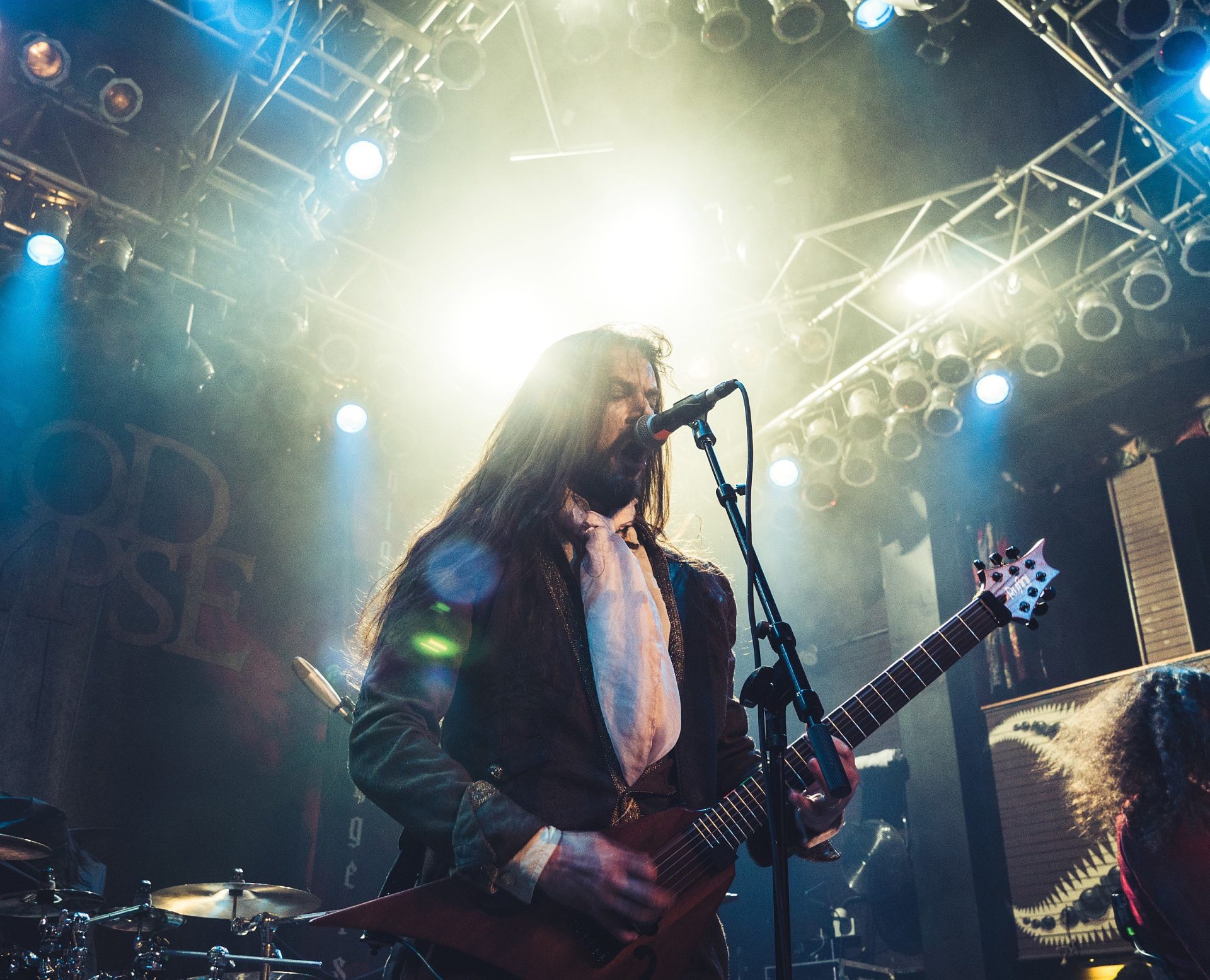
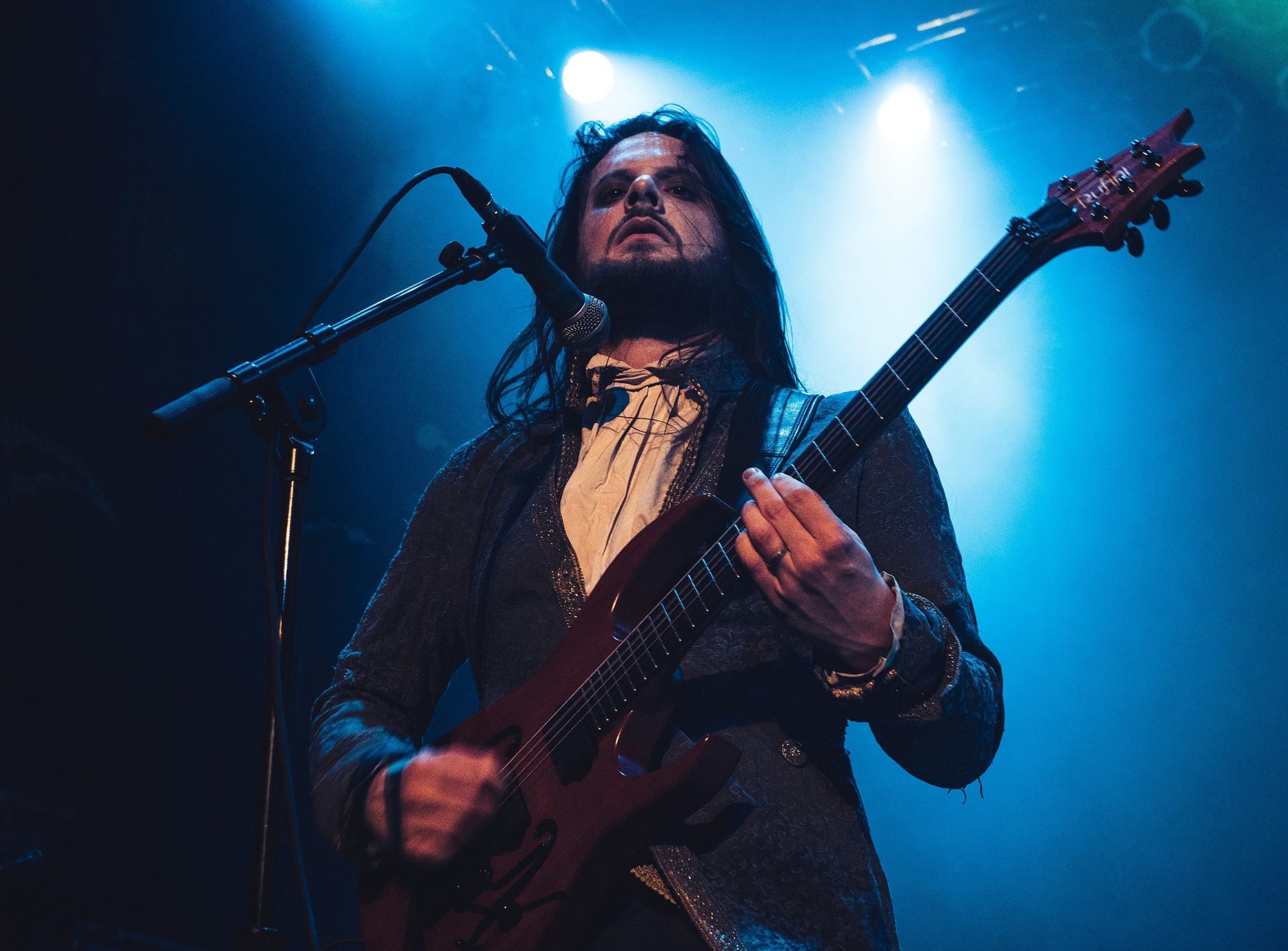
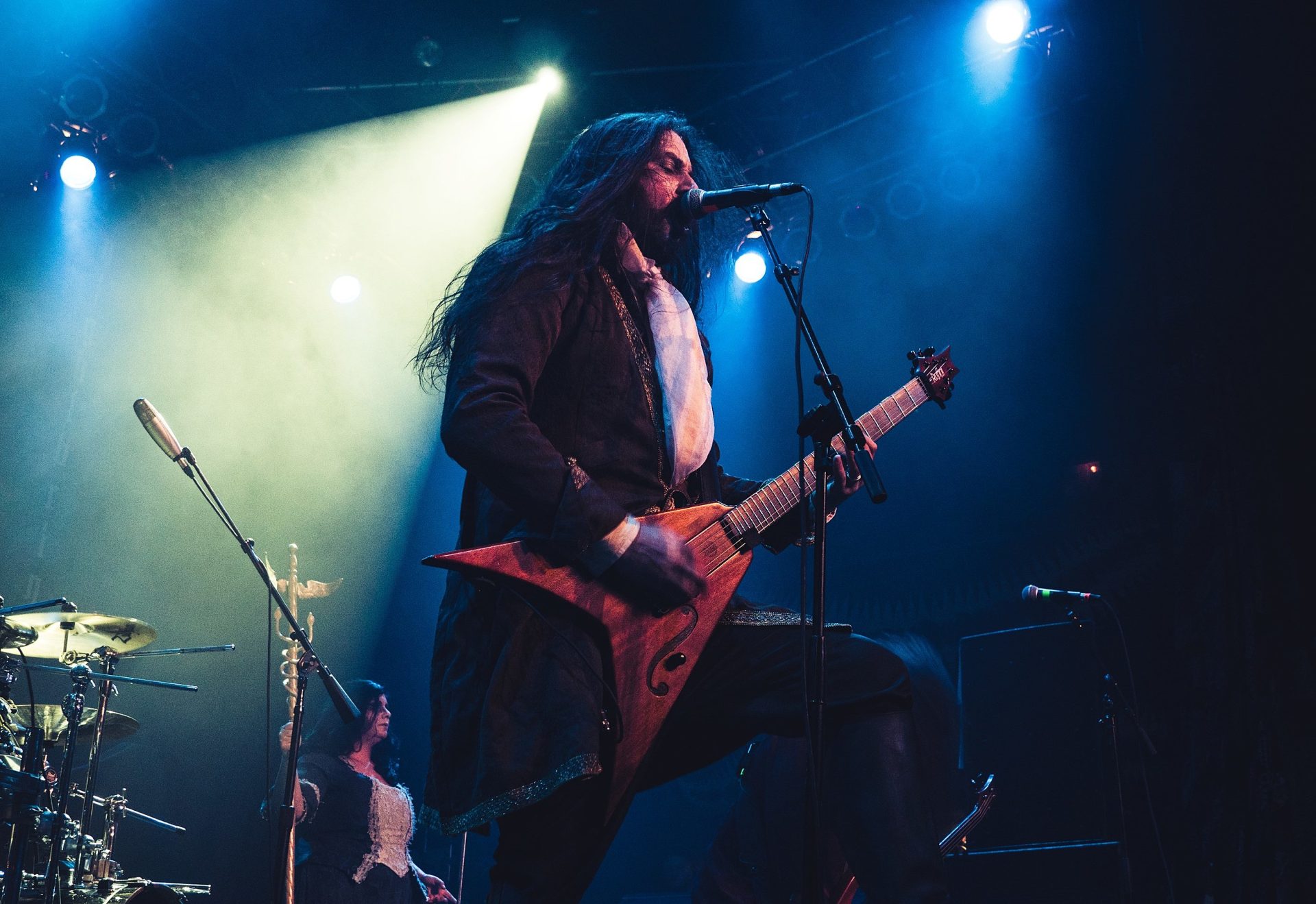
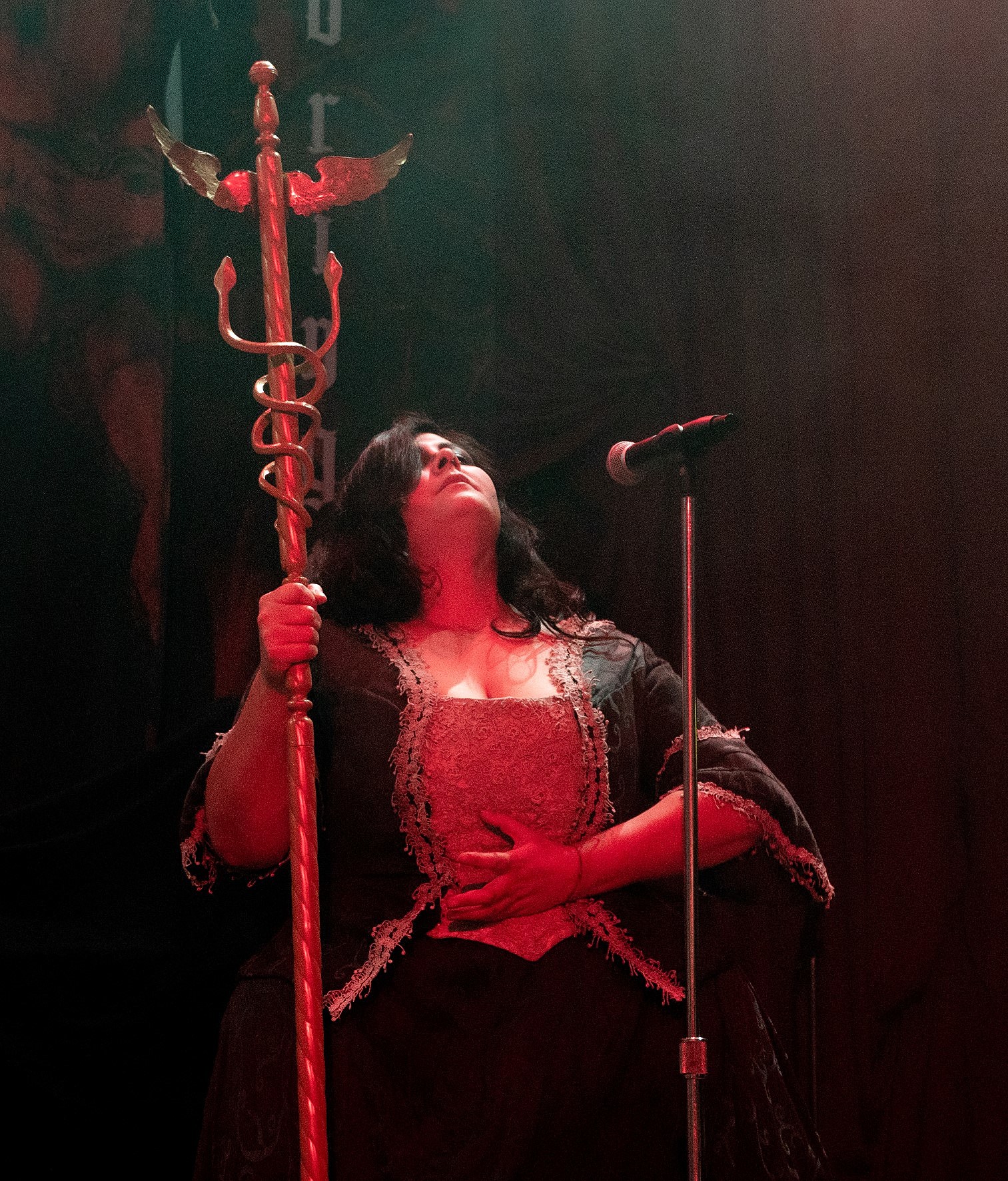
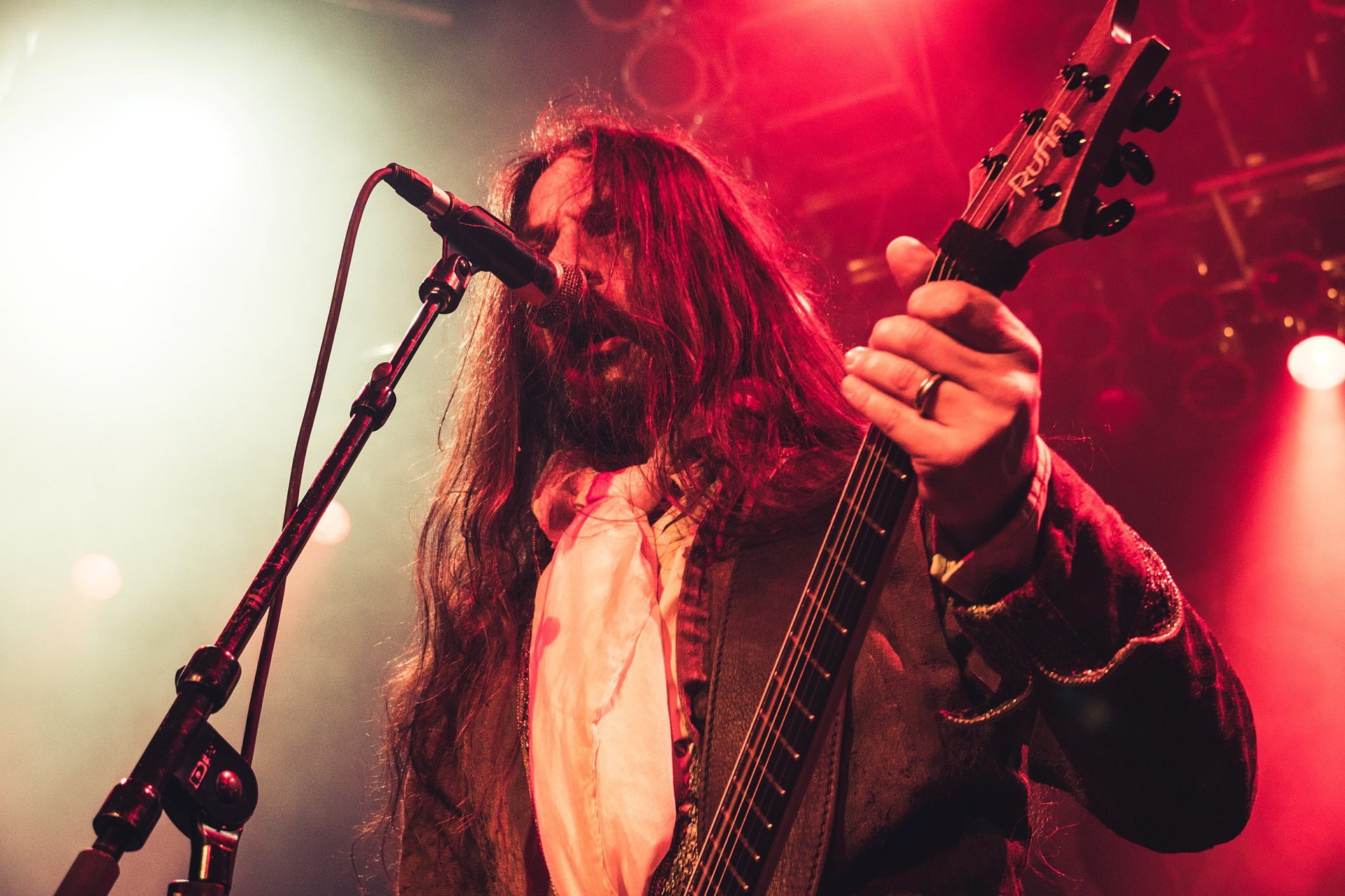
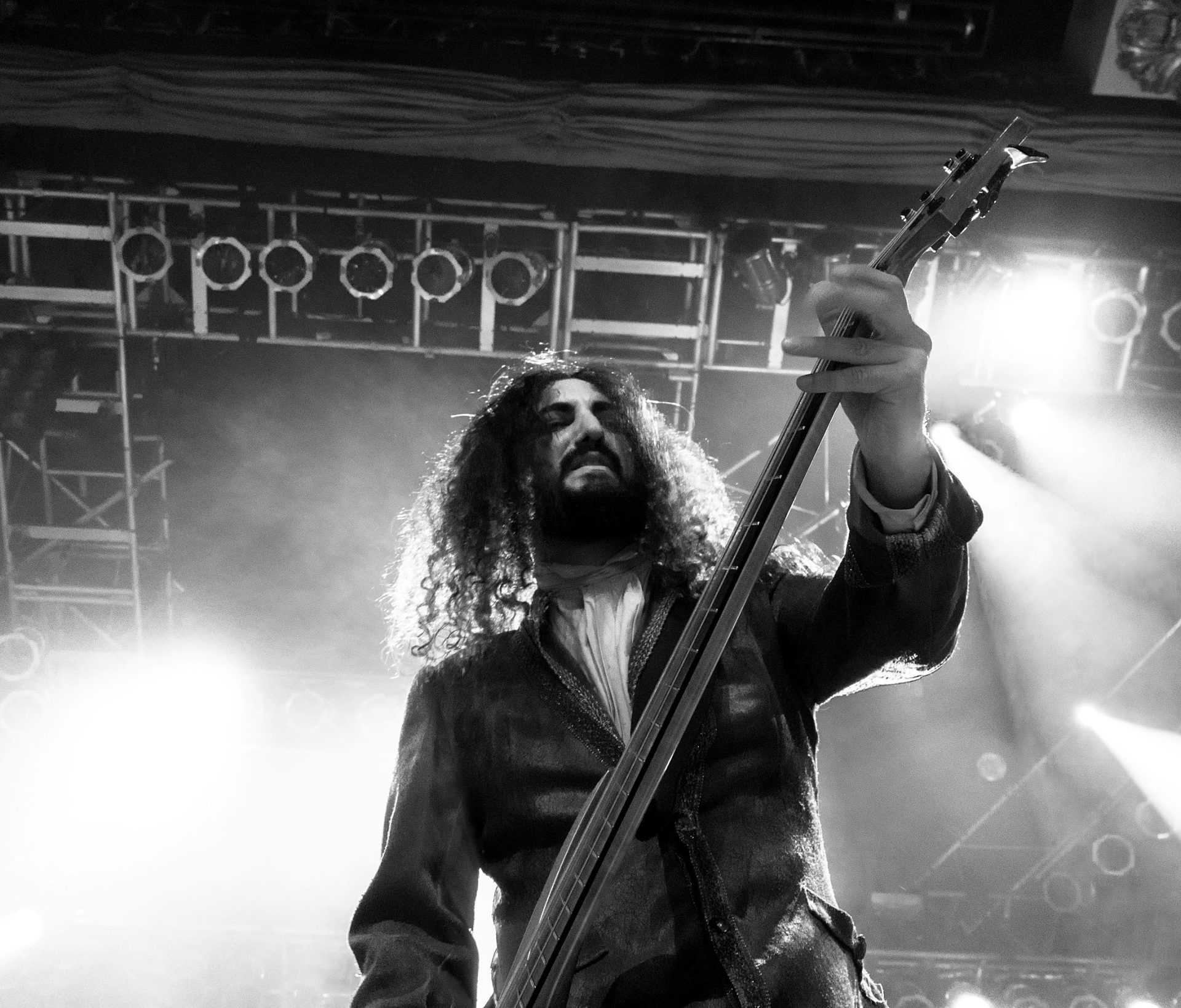
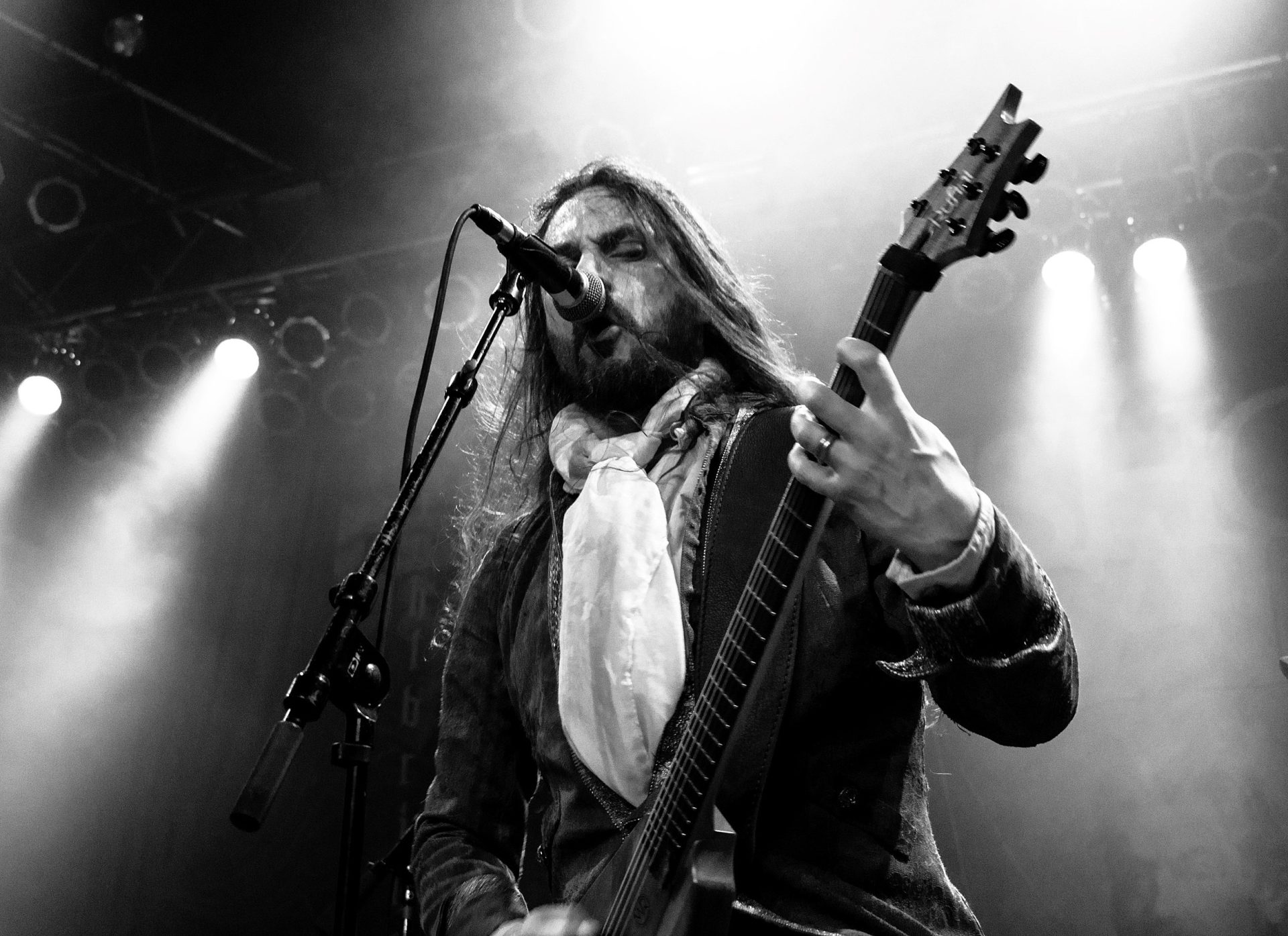
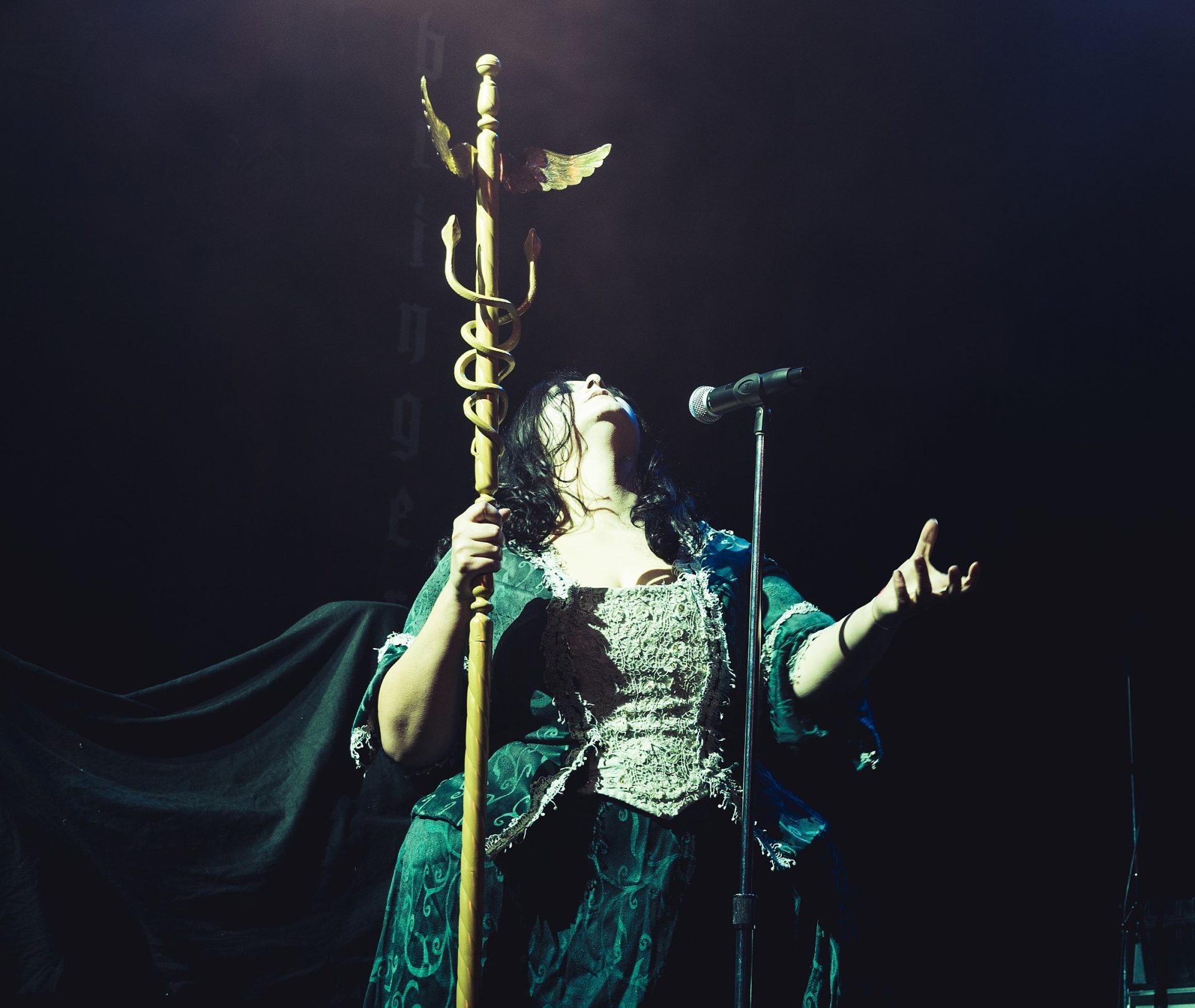
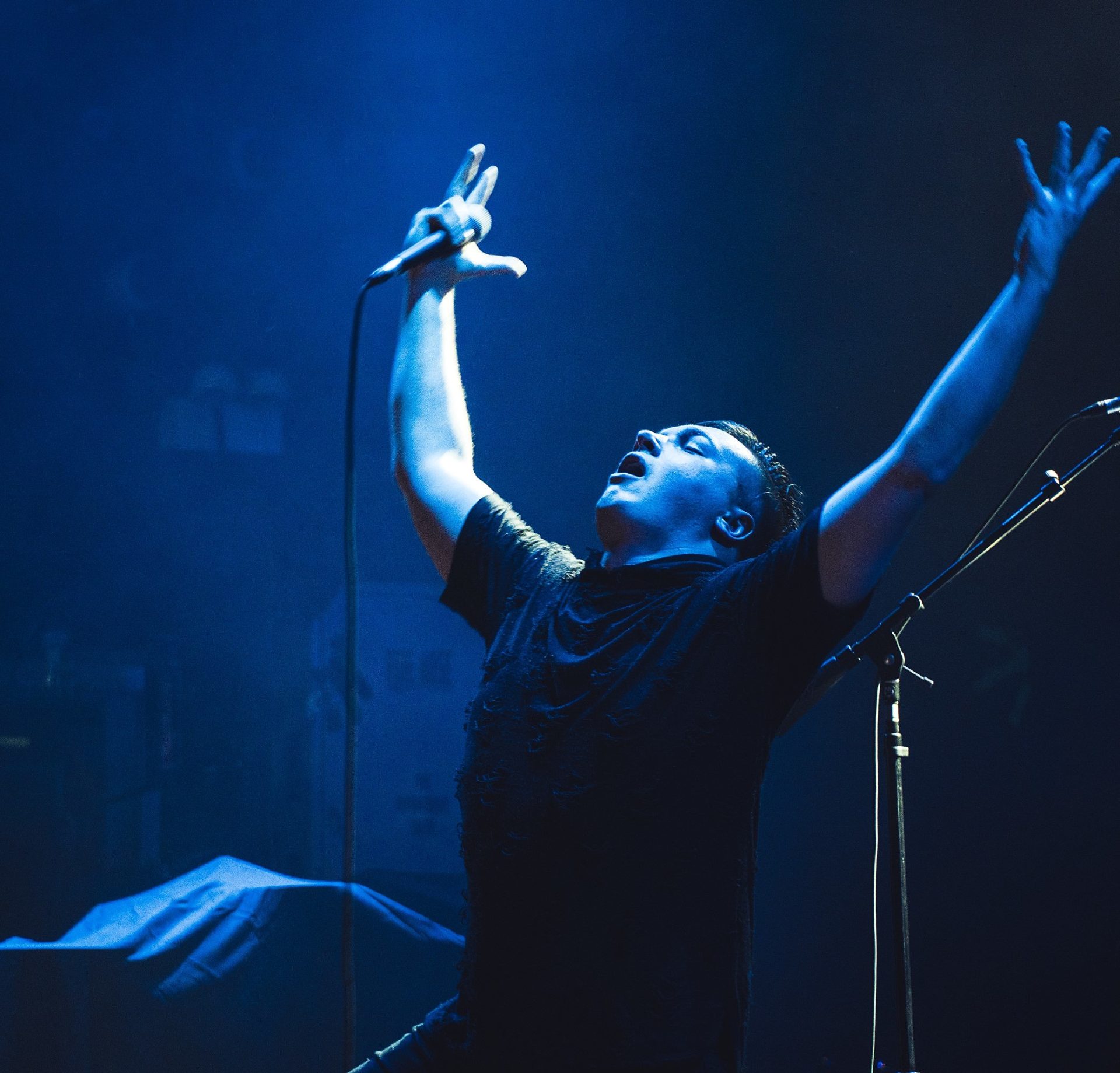
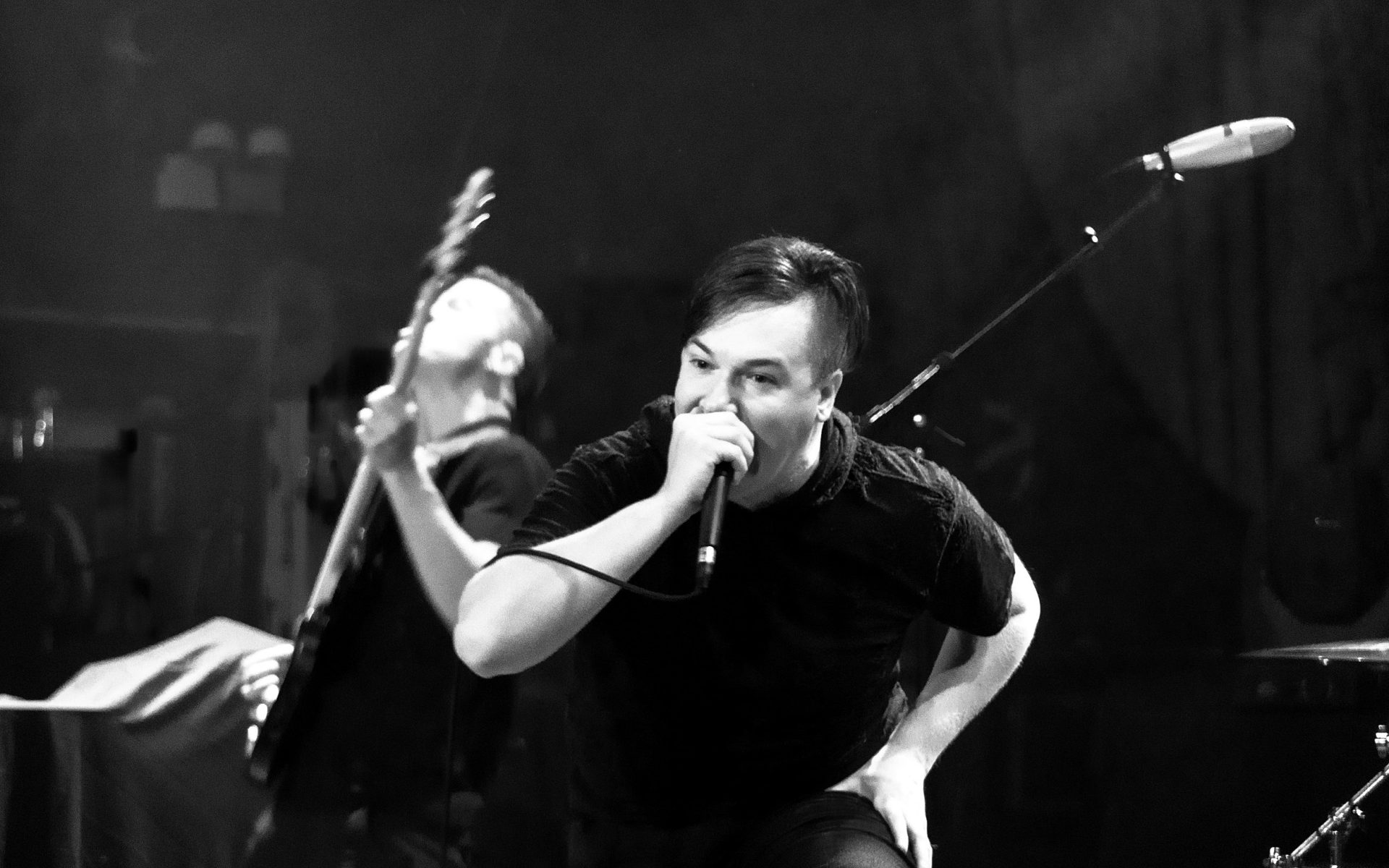
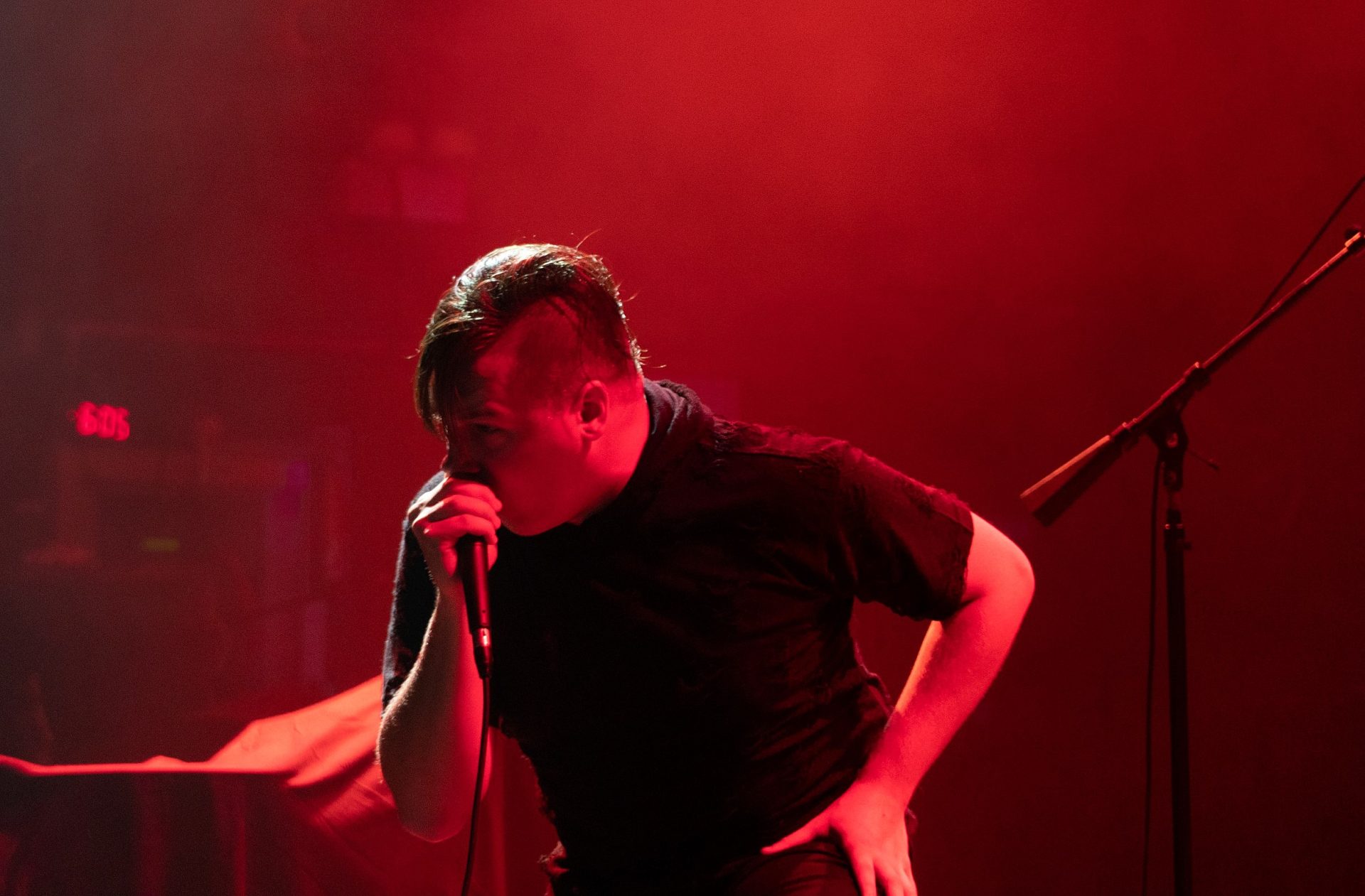
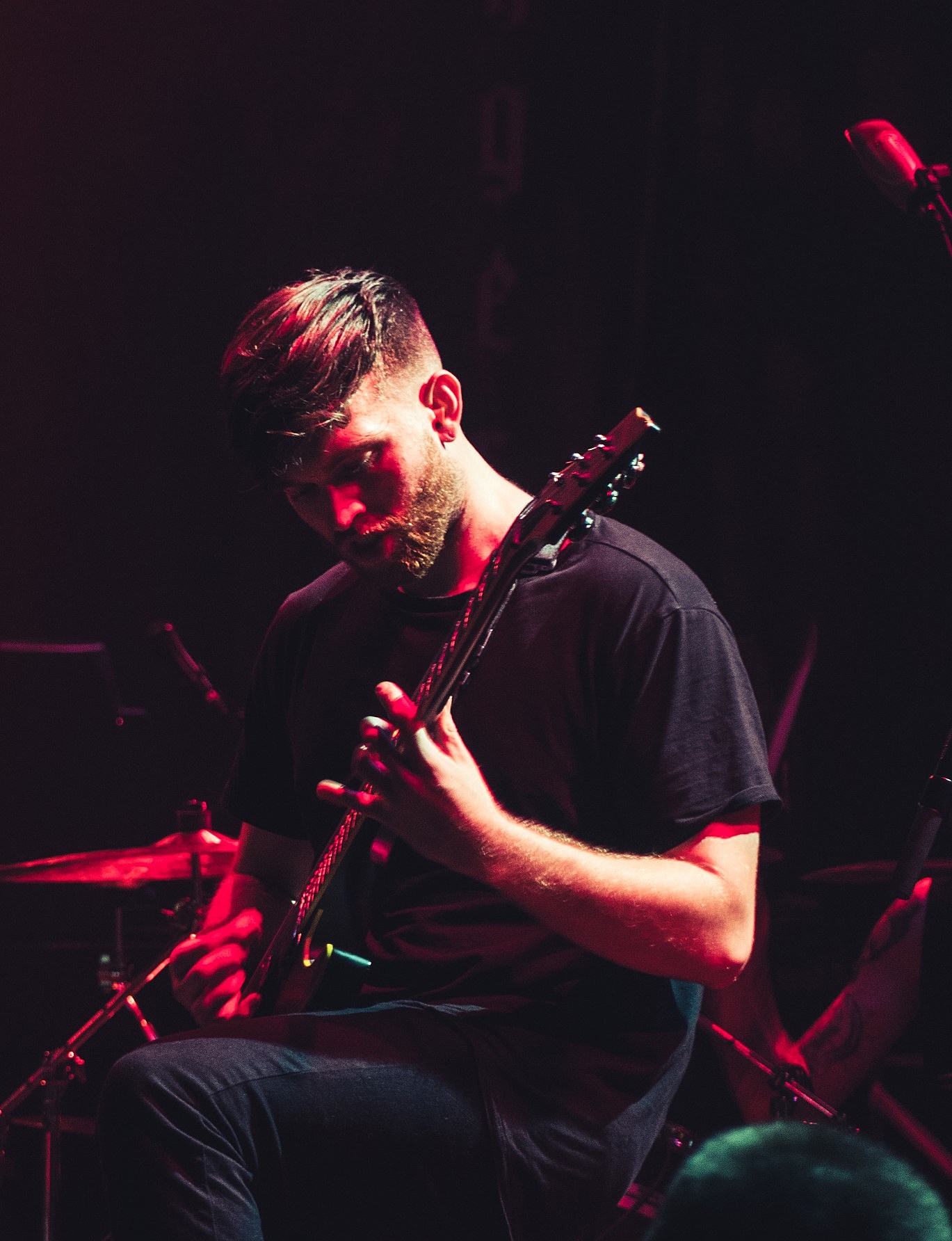
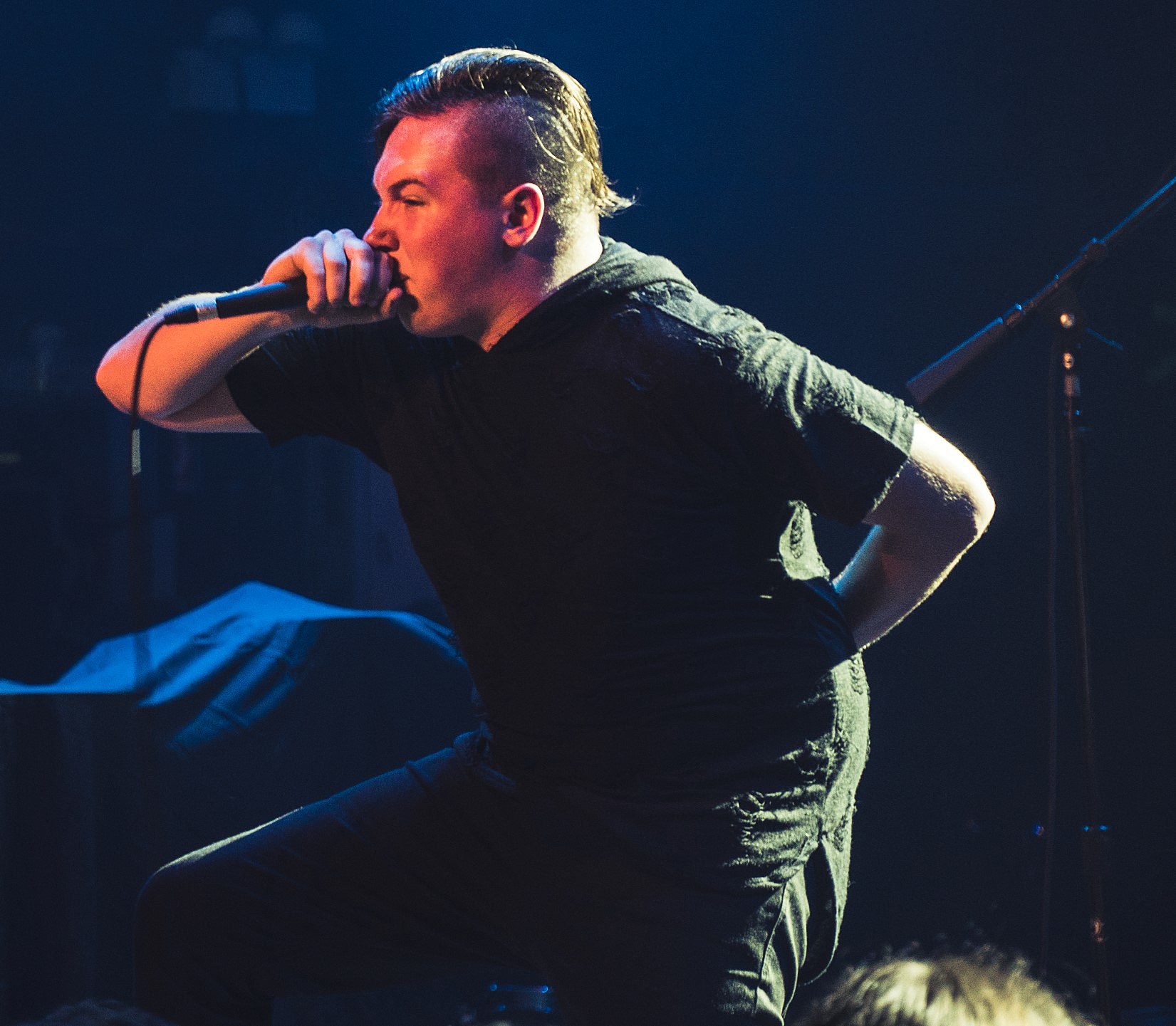
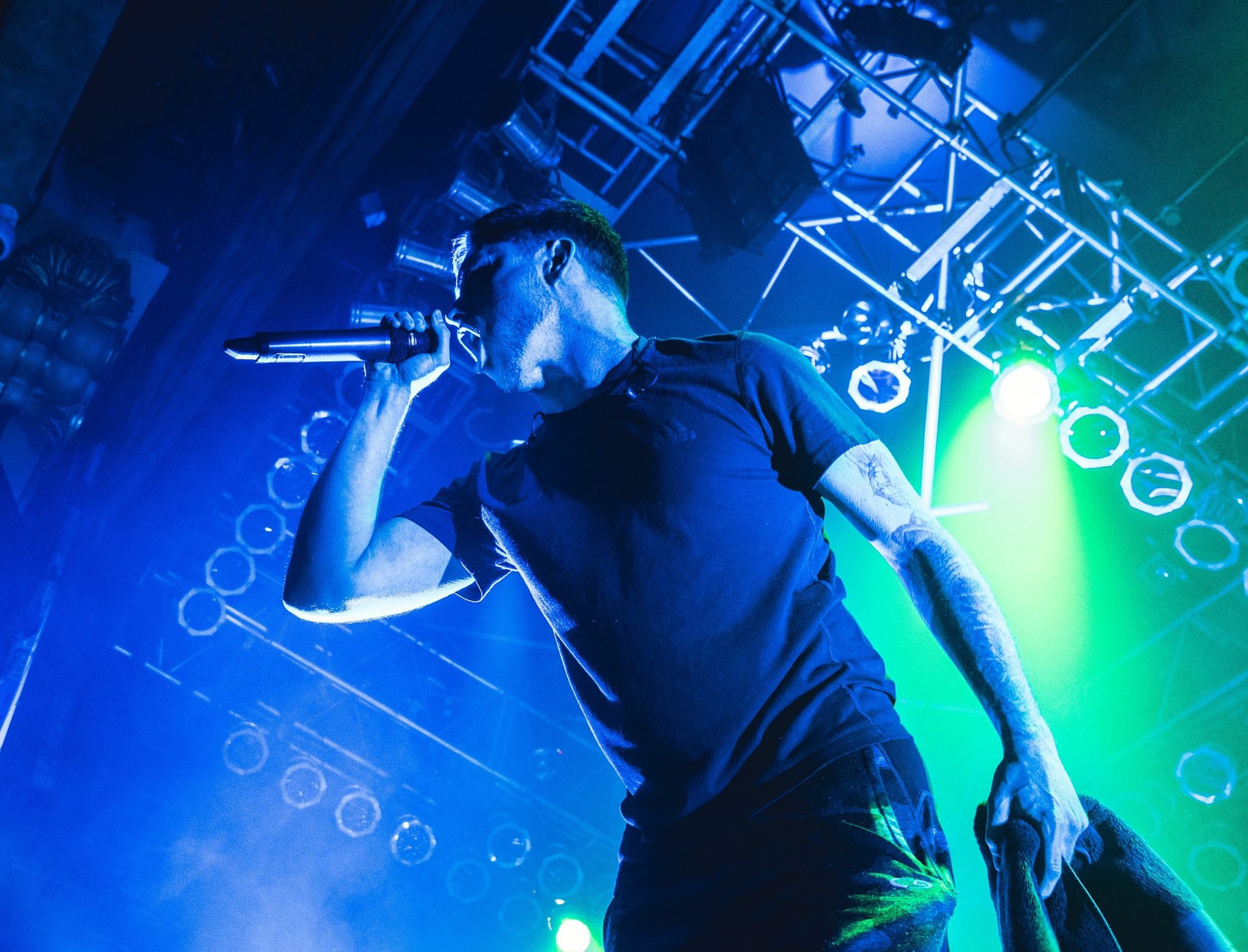

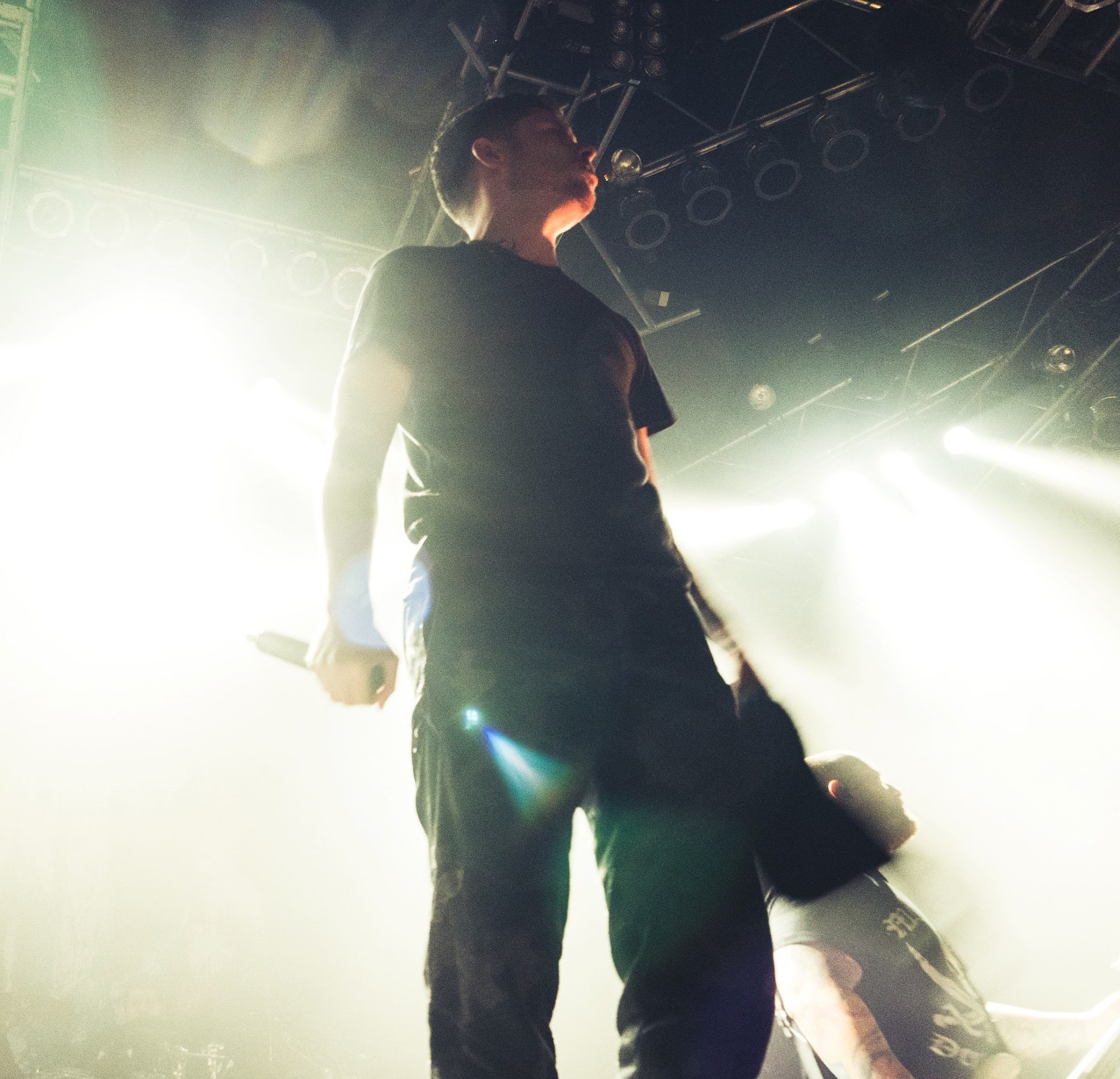
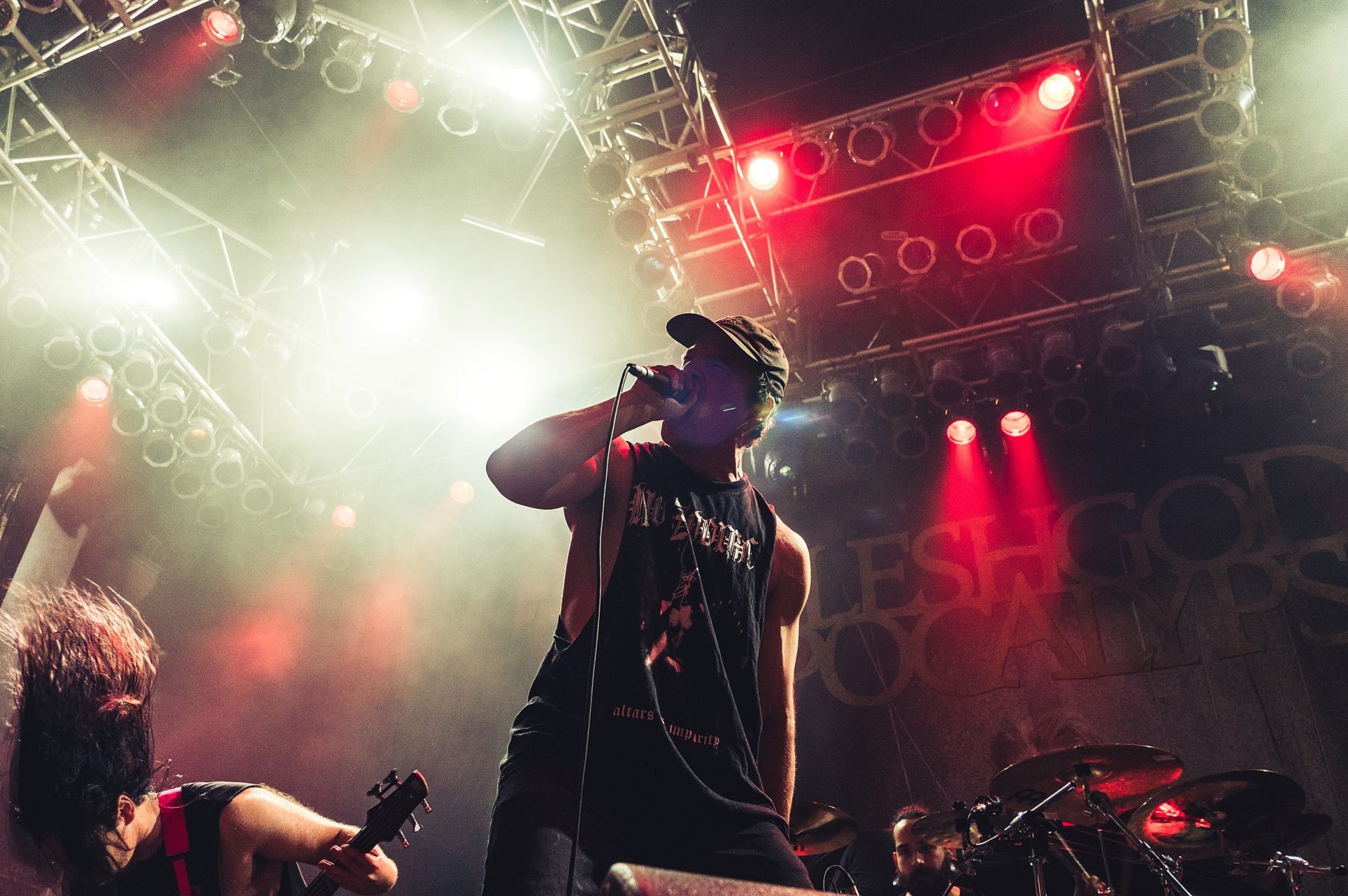
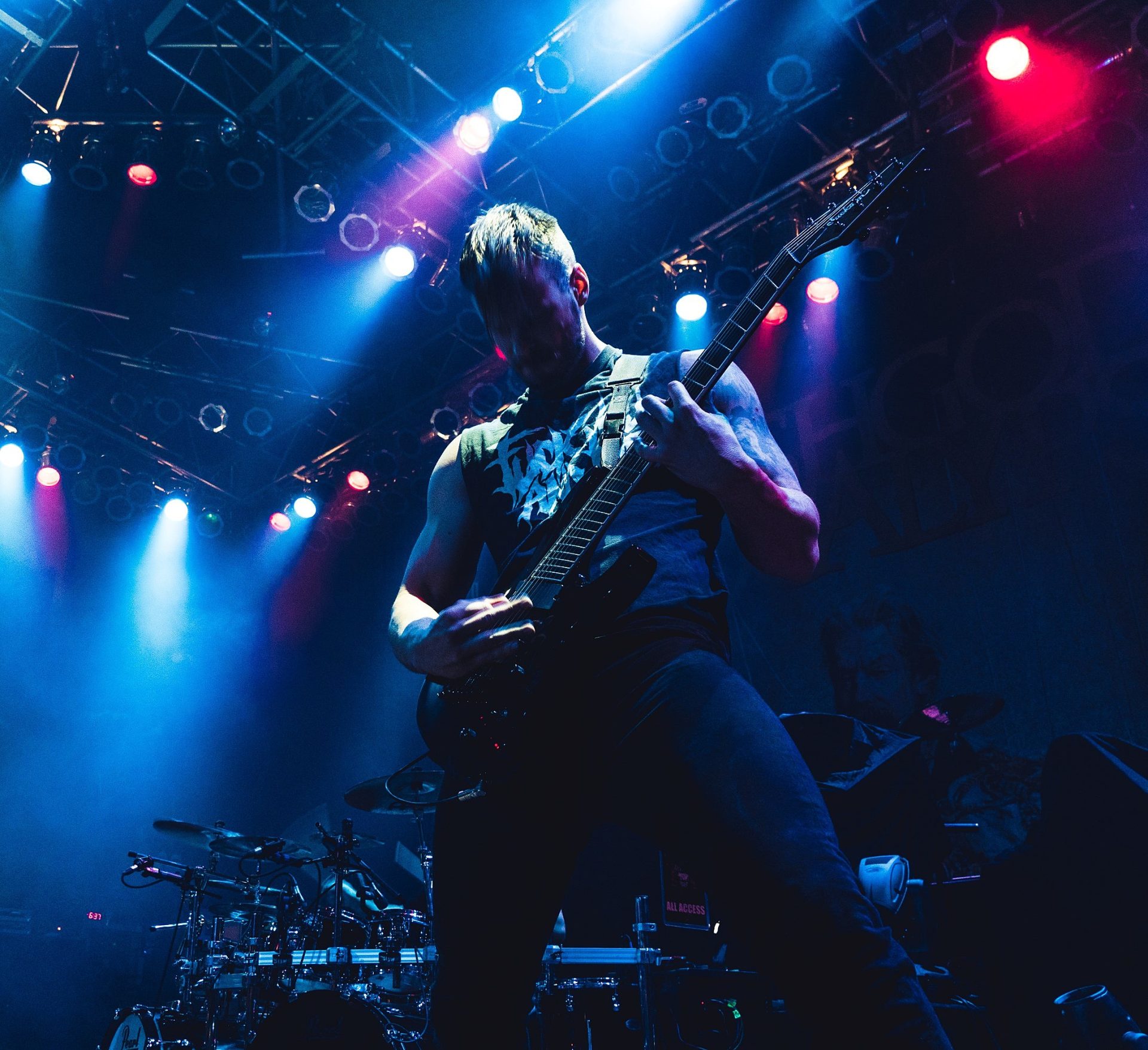
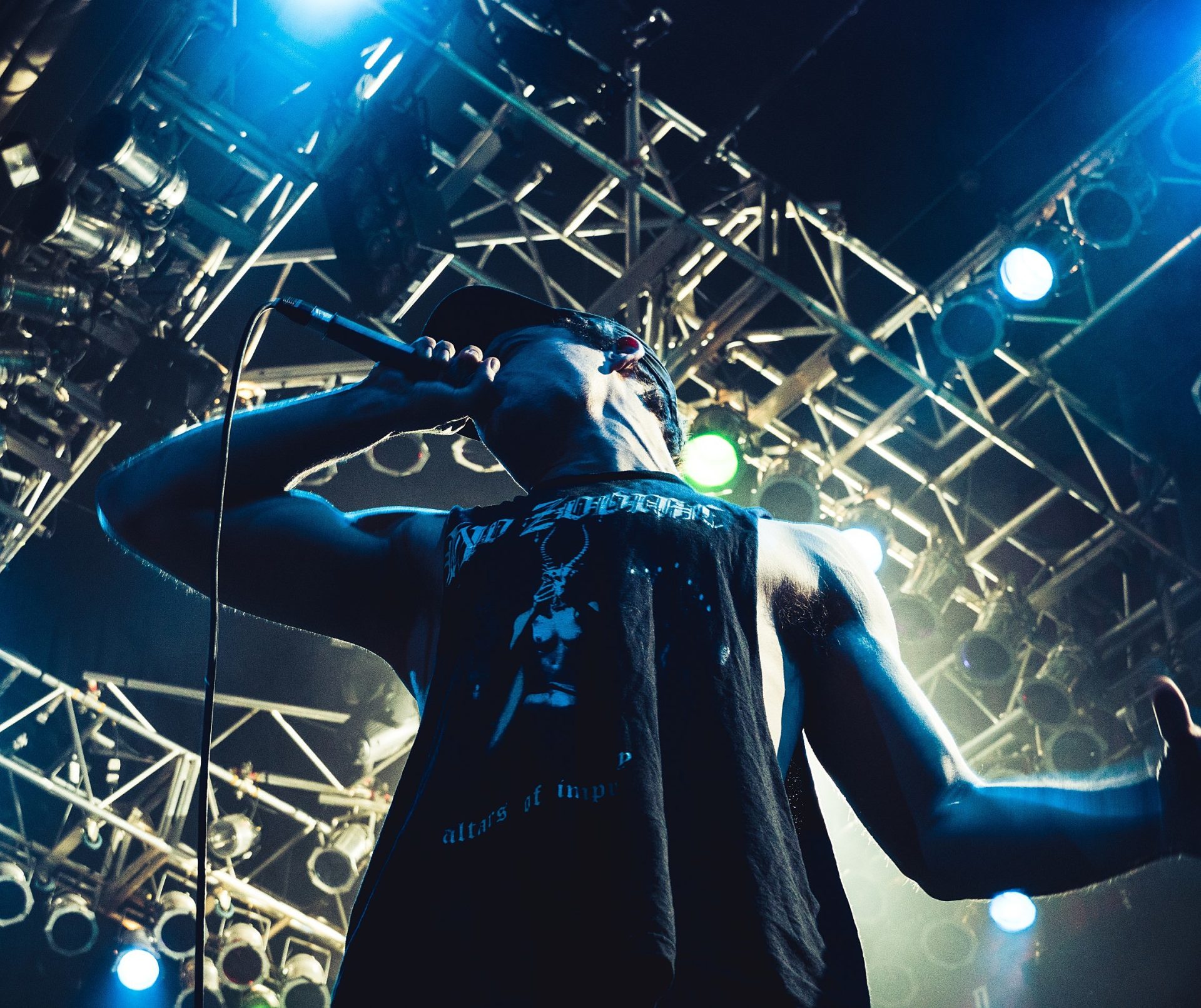
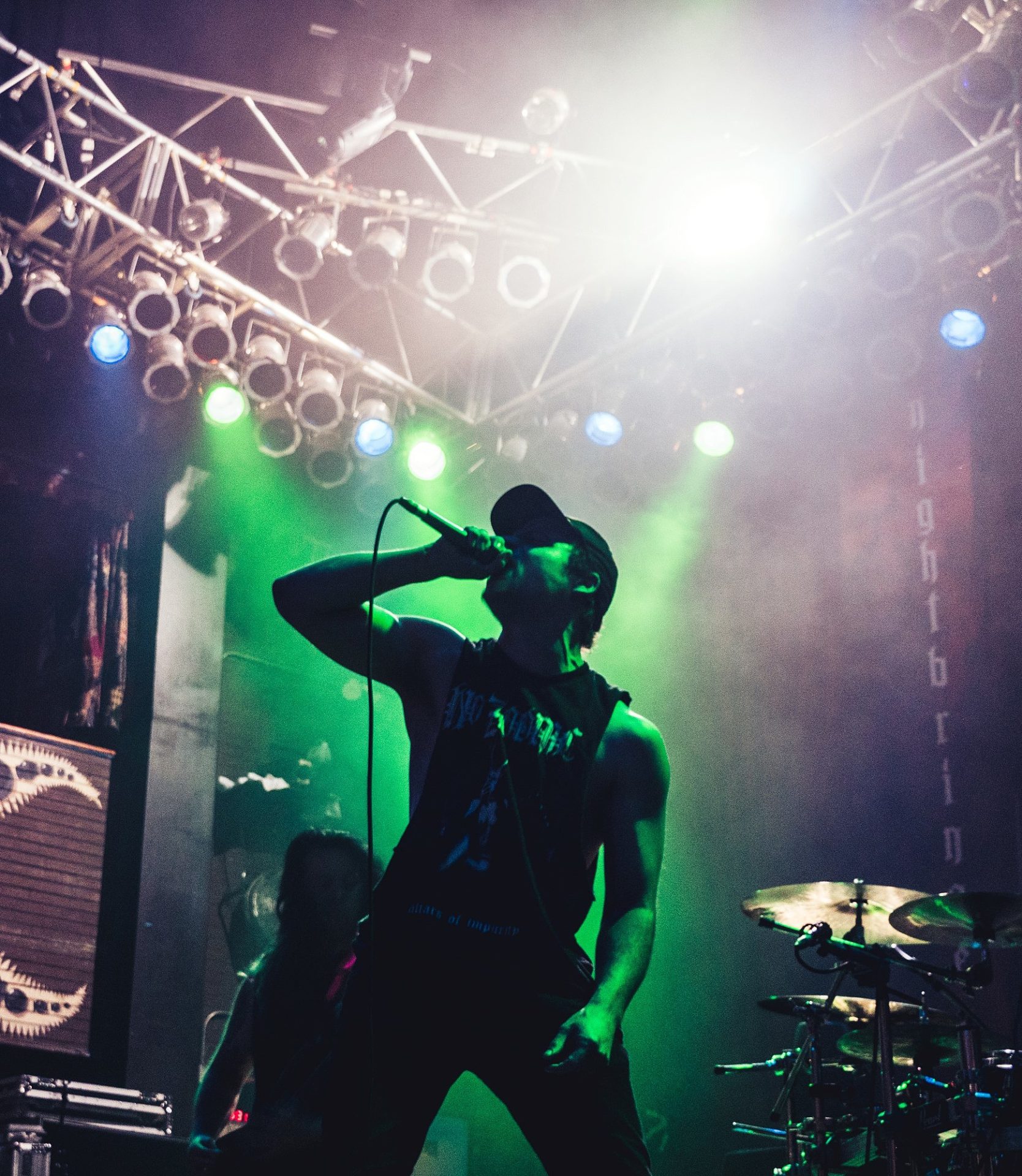
…










